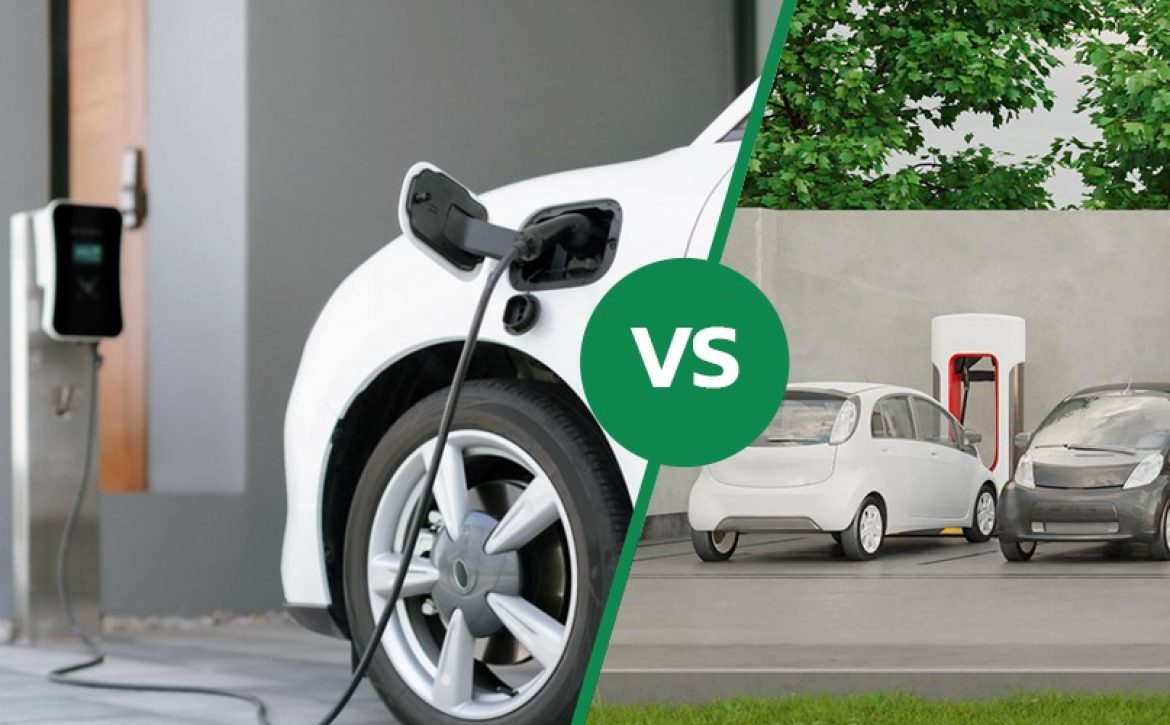Home Electric Vehicle Charging Station VS Public Electric Vehicle Charging Station
Electric vehicles (EVs) are becoming increasingly popular as a cleaner and more sustainable mode of transportation. As EV adoption grows, one of the key considerations for potential owners is where and how to charge their vehicles. Two primary options are available: home electric vehicle charging stations and public electric vehicle charging stations. Public electric vehicle charging station allows EV owners to charge their vehicles at a publicly available parking space. On the other hand, home electric vehicle charging station allows EV owners to charge their vehicles at home. These chargers are usually installed in a residential garage and provide a convenient and efficient way to recharge an EV. Each has advantages and disadvantages, and the choice depends on individual needs, lifestyle, and driving habits. This blog will discuss the differences between Public Electric Vehicle Charging Station and the Home Electric Vehicle Charging stations.
Difference Between Home Electric Vehicle Charging Stations vs Public Electric Vehicle Charging Stations
Here are a few differences between Home Electric Vehicle Charging Stations and Public Electric Vehicle Charging Stations
1. Location
- Public Electric Vehicle Charging Stations: Located in public areas like shopping centers, highways, and parking lots.
- Home Electric Vehicle Charging Stations: Installed at the EV owner’s residence, often in a garage or driveway.
2. Charging Speed
- Public Electric Vehicle Charging Stations: Offer varying charging speeds, including Level 1, Level 2, and DC fast charging.
- Home Electric Vehicle Charging Stations: Typically provide Level 1 or Level 2 charging, or AC Charger being the most common for home use.
3. Accessibility
- Public Electric Vehicle Charging Stations: Accessible to the general public, available 24/7 in many cases.
- Home Electric Vehicle Charging Stations: Private and accessible only to EV owners and their households.
4. Cost
- Public Electric Vehicle Charging Stations: These may have different pricing structures, including pay-per-use, subscription plans, or even discounted charging at some locations.
- Home Electric Vehicle Charging Stations: Involve upfront costs for the charger, installation, and any necessary electrical upgrades, but often result in lower long-term charging costs.
5. Control and Scheduling
- Public Electric Vehicle Charging Stations: The user can schedule an appointment using the Servotech EV charging app. For charging to occur, either a designated person is present at the station to facilitate the charging process or the users can do it themselves using the Servotech EV charging app or QR code.
- Home Electric Vehicle Charging Stations: When you live in housing societies there is a high chance that your charger can be misused. In this case, an RFID card is essential to ensure security and control of the charging process.
6. Purpose
- Public Electric Vehicle Charging Stations: Designed for on-the-go charging, supporting long trips, and charging while shopping, dining, or running errands.
- Home Electric Vehicle Charging Stations: Intended for daily charging needs, especially for commuters and overnight charging.
7. Use Cases
- Public Electric Vehicle Charging Stations: Crucial for long-distance travel, offering fast charging along highways and major routes.
- Home Electric Vehicle Charging Stations: Ideal for regular, predictable charging needs, ensuring the EV is ready for daily use.
8. Network Variety
- Public Electric Vehicle Charging Stations: Part of diverse charging networks with varying connectors and pricing structures.
- Home Electric Vehicle Charging Stations: Part of diverse charging networks with varying connectors and pricing structures.
9. Waiting Times
- Public Electric Vehicle Charging Stations: Possible wait times during peak hours or when stations are in use.
- Home Electric Vehicle Charging Stations: No waiting, as the charger is dedicated to the EV owner.
10. Reliability
- Public Electric Vehicle Charging Stations: Availability and reliability can vary by location and network, with occasional out-of-service issues.
Home Electric Vehicle Charging Stations: Reliable, assuming proper installation and maintenance, providing consistent access to charging.
Read also: Difference between AC and DC Charger For Electric Vehicles

